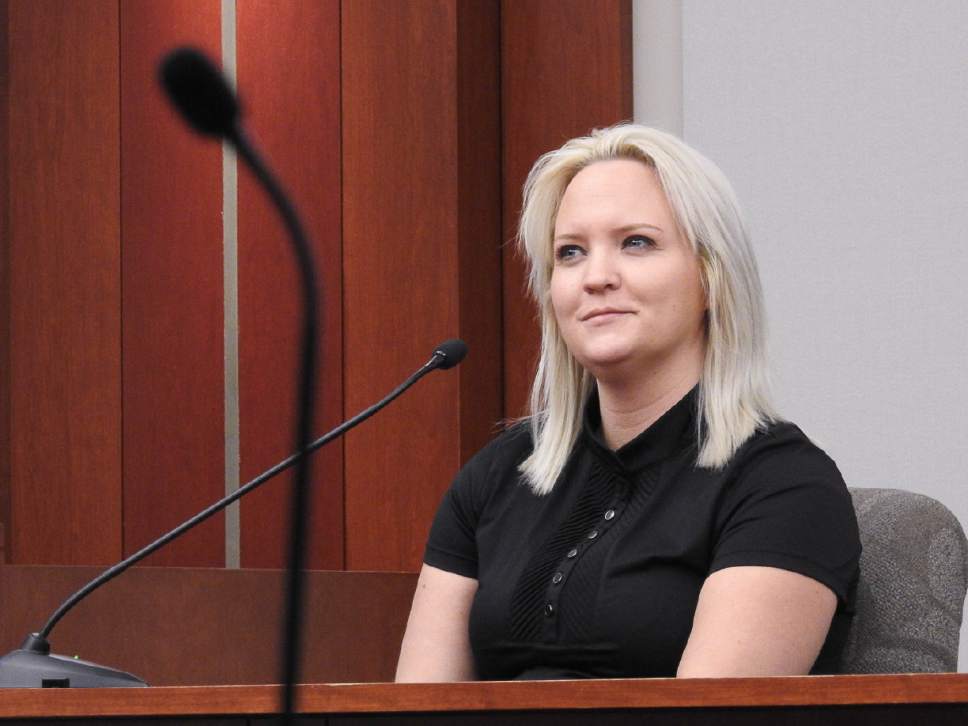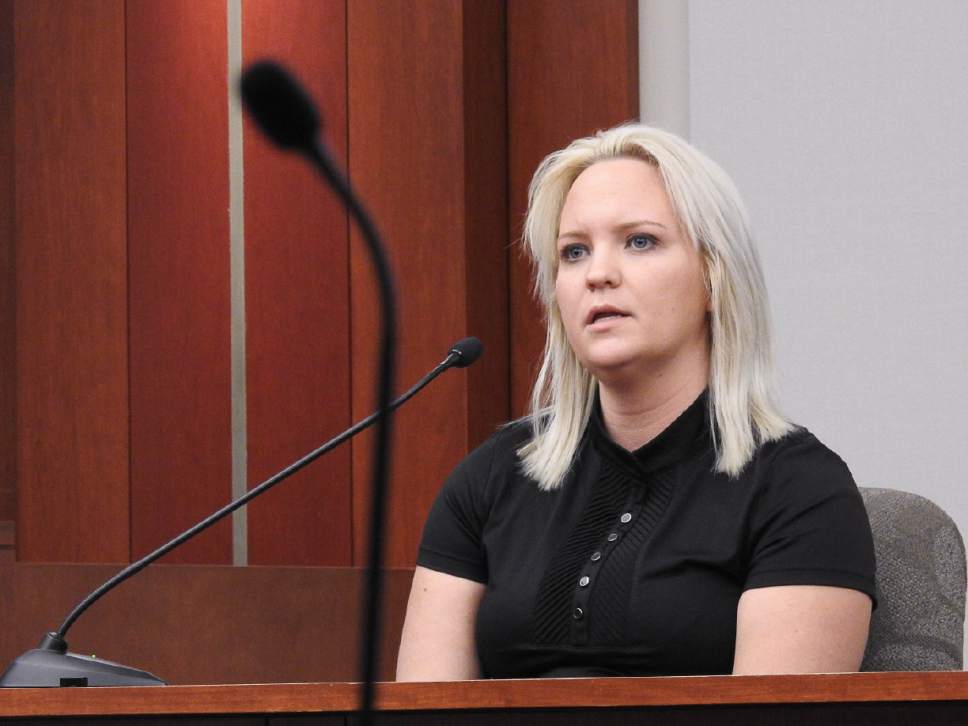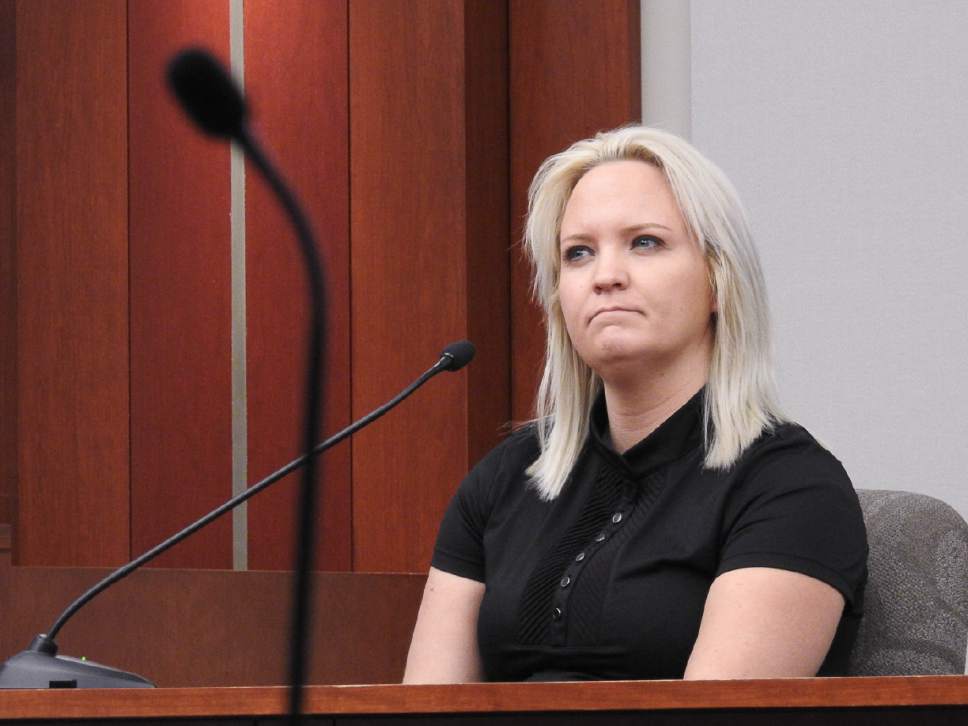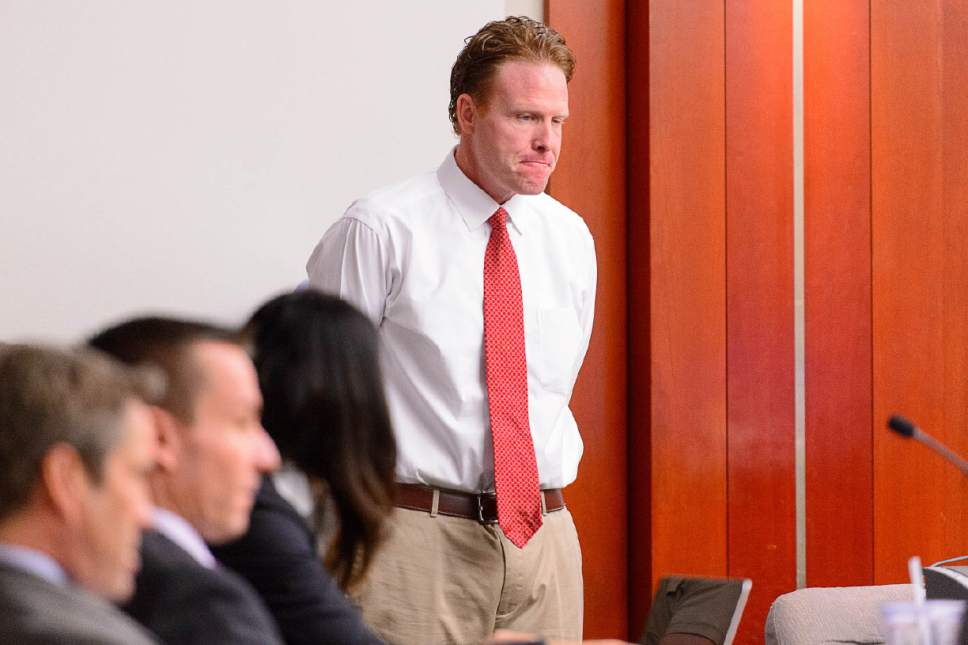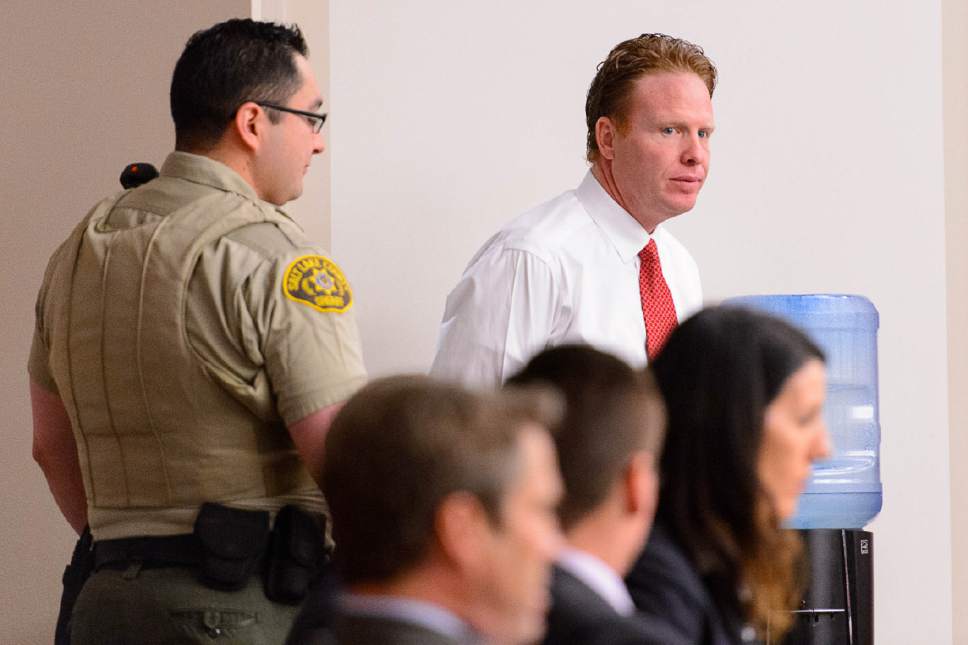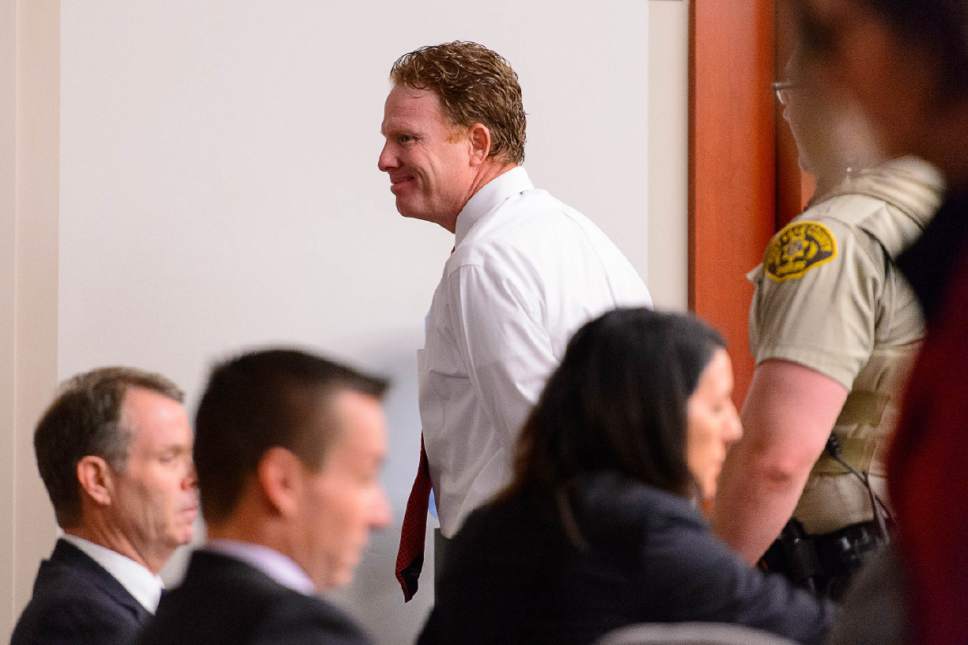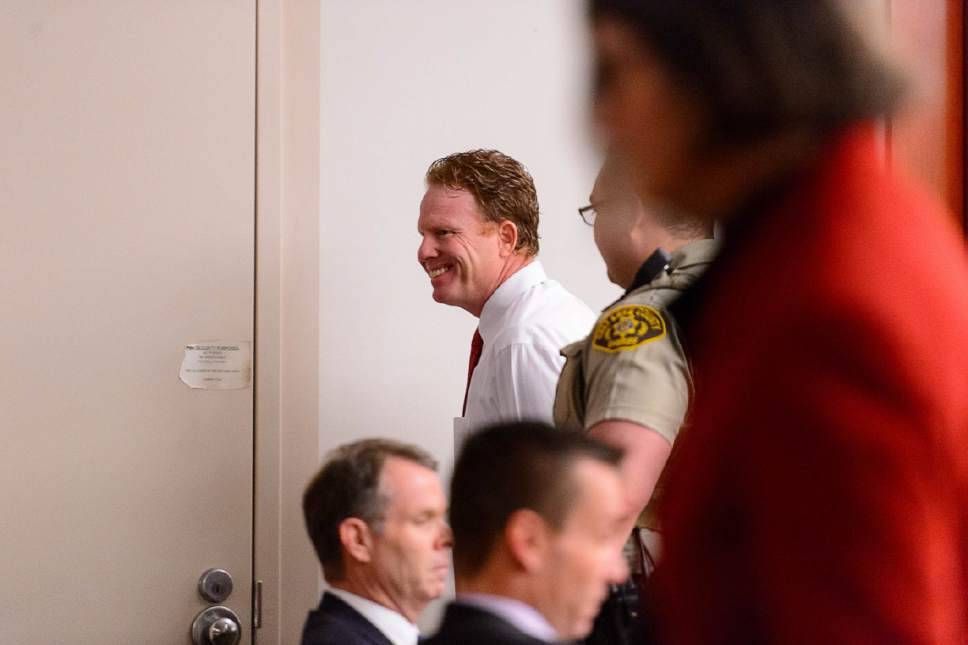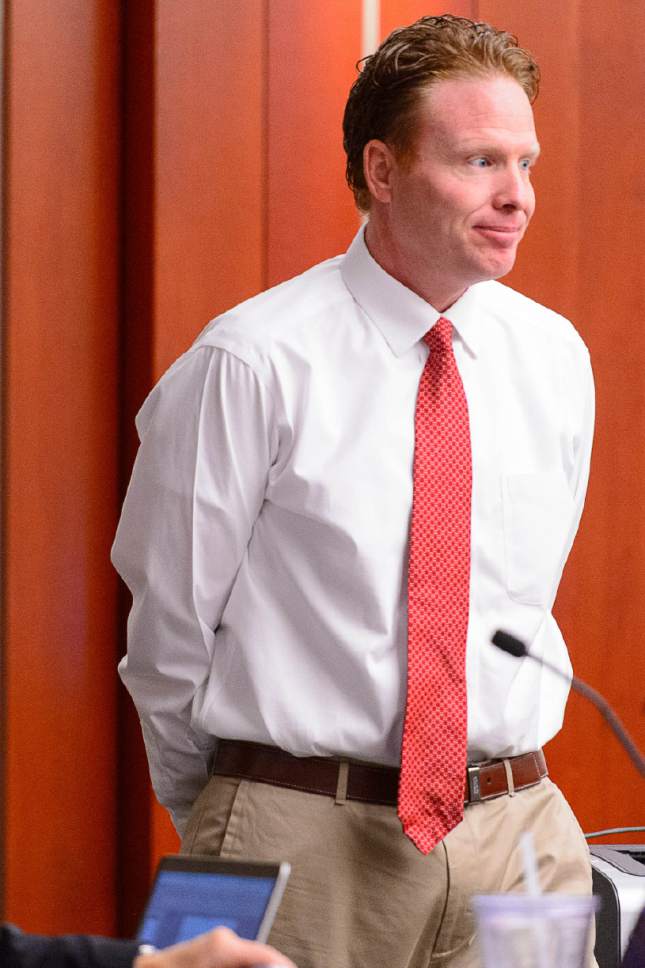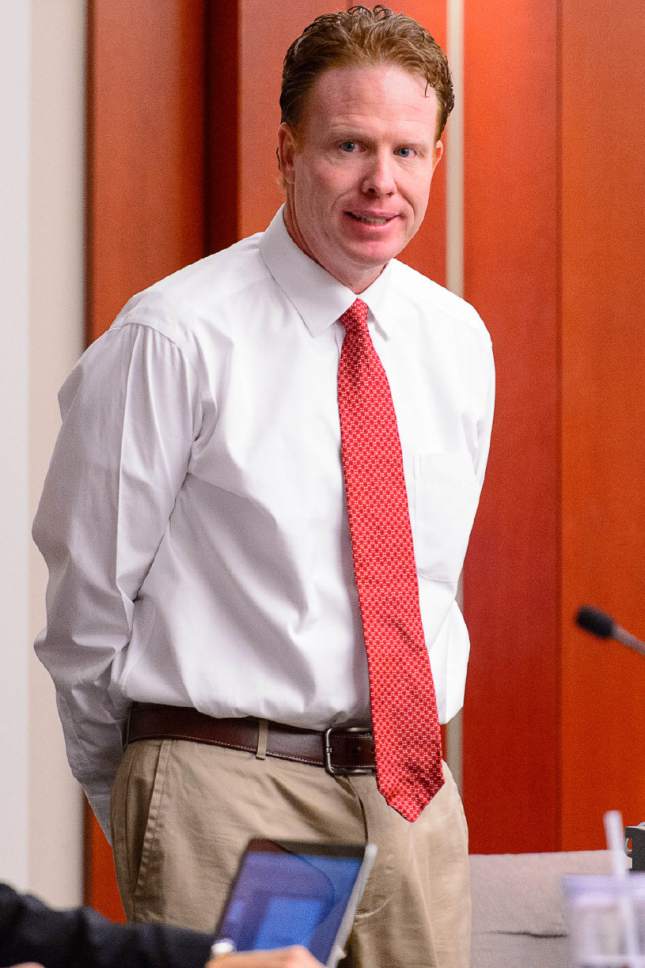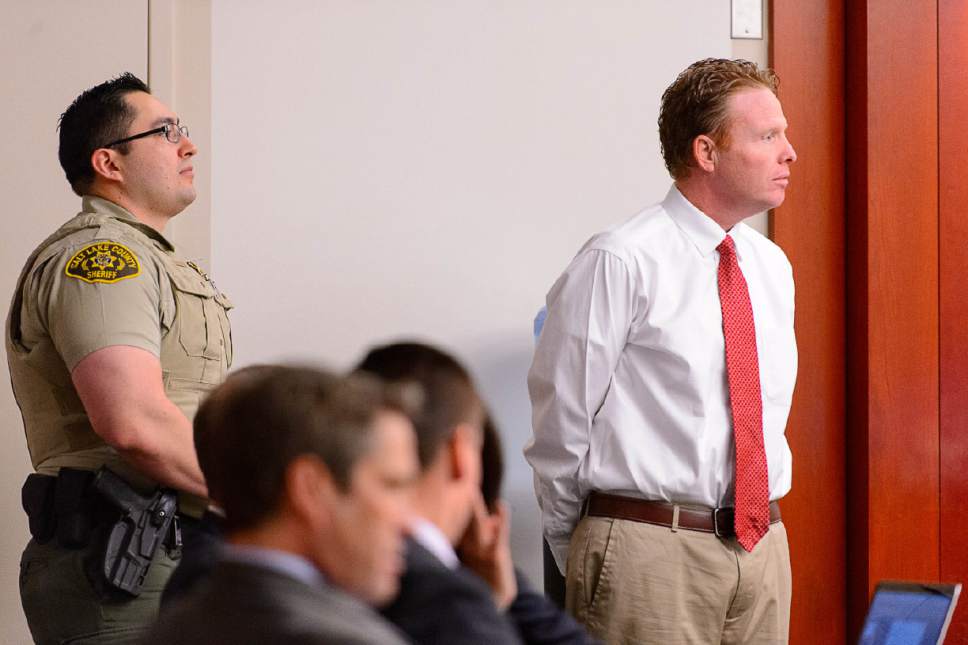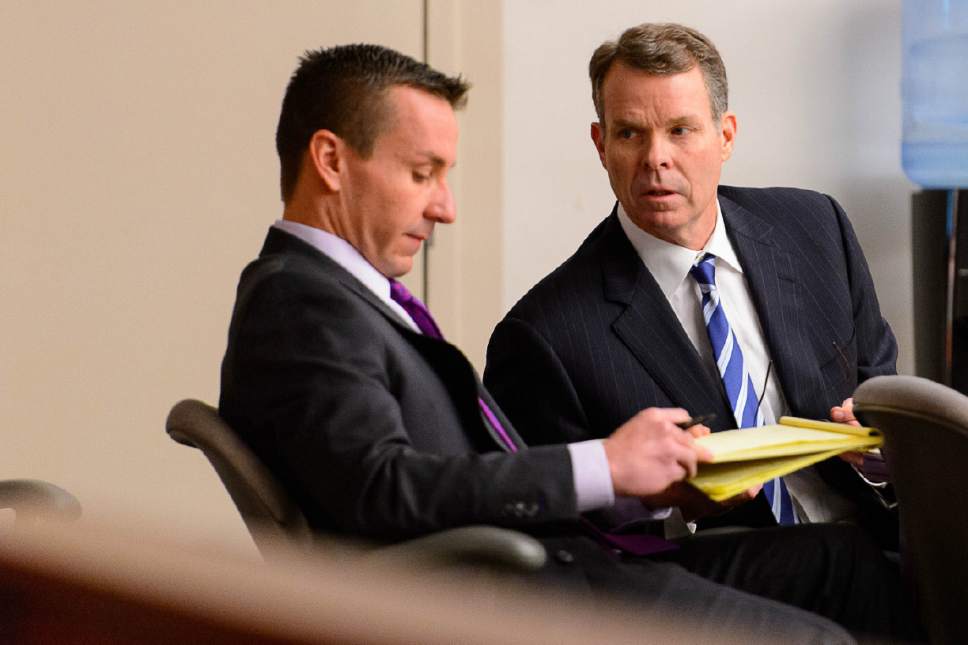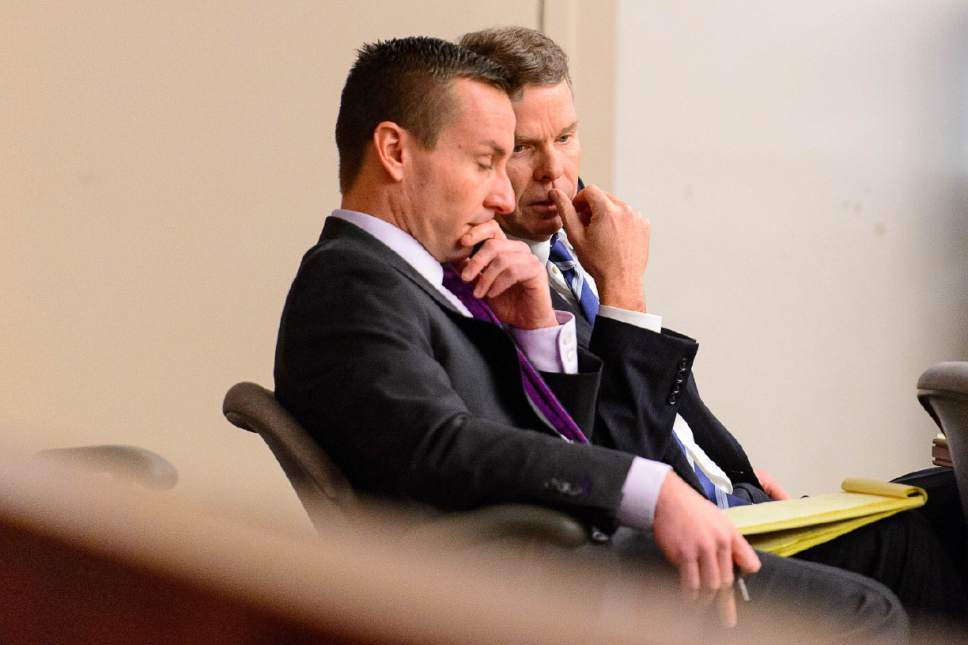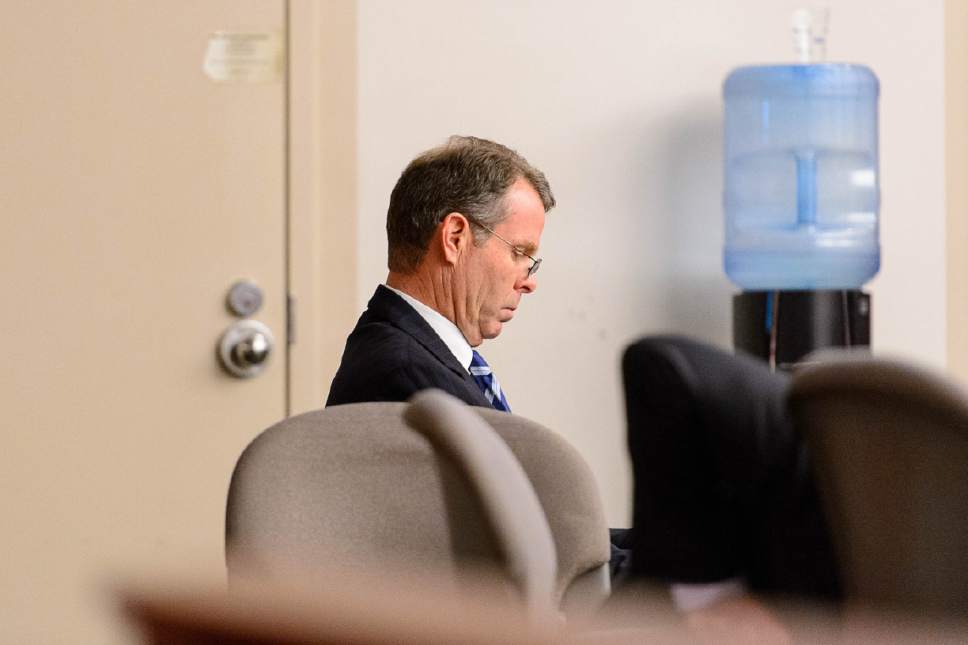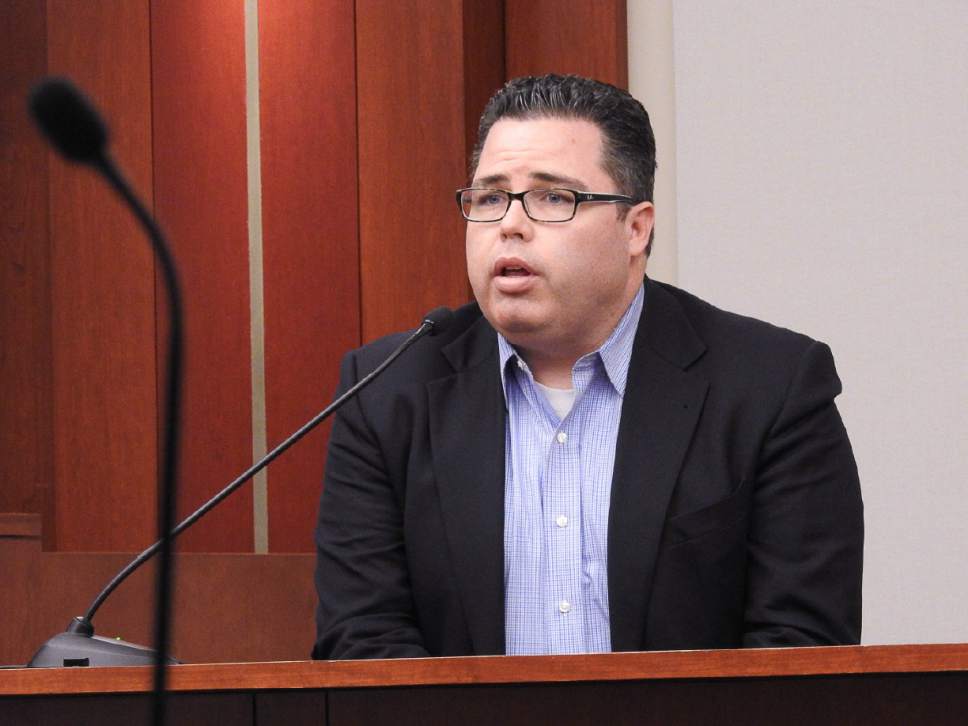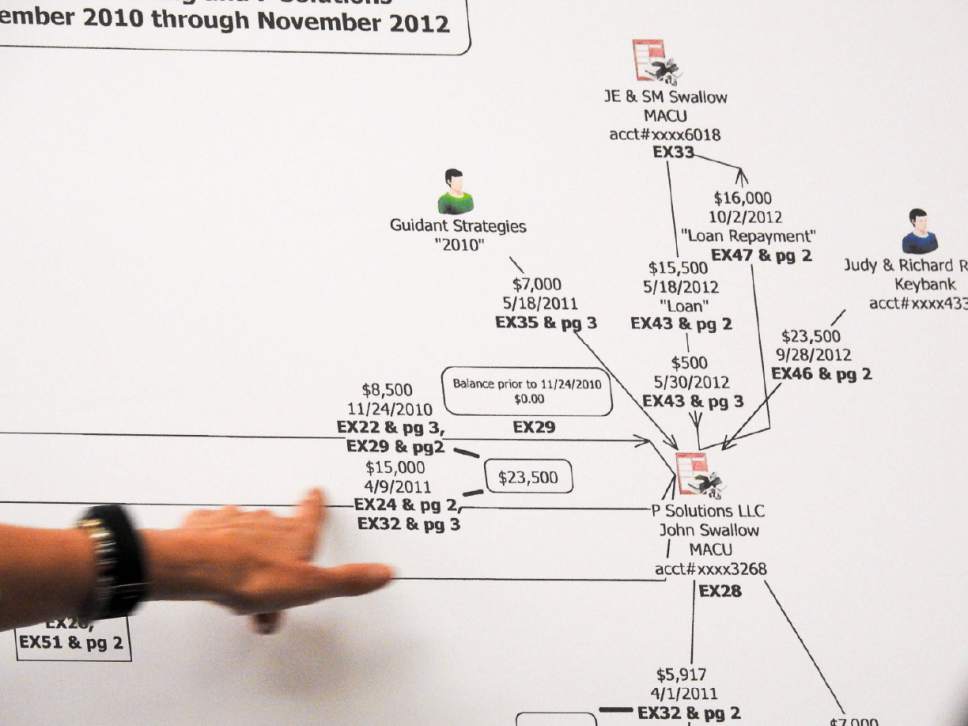This is an archived article that was published on sltrib.com in 2017, and information in the article may be outdated. It is provided only for personal research purposes and may not be reprinted.
Just call it Groundhog Day.
Day nine of the public corruption trial of former Utah Attorney General John Swallow started Tuesday much like it did every day for the past week: Key witness Jeremy Johnson again refused to testify, throwing a wrench into the plans of Salt Lake County prosecutors.
Johnson was found in contempt of court a week ago and ordered to spend 30 days jail after taking the stand and refusing to answer questions.
Already in federal prison after a conviction in a 2016 federal bank fraud case, Johnson's attorneys said Friday they want an immunity deal that will protect him from future state or federal criminal charges.
Prosecutors are willing to give the former St. George businessman a deal, but talks with the U.S. Department of Justice have so far been unsuccessful.
Four of the 13 counts Swallow is fighting are tied to testimony Johnson was expected to provide.
The latest from Day 9 of the trial:
3:05 p.m.
A former employee of Check City told a jury on Tuesday that he loaded money onto a pre-paid debit card for John Swallow at the direction of his boss and company owner Richard Rawle.
Rawle, who died in December 2012, said the money was for gold coins Swallow had sold to the payday lending magnate. But Walker said didn't see the transaction himself, nor ever saw any documentation of the sale.
Walker told the jury he made seven or 10 such payments to Swallow at Rawle's direction, all to the debit card. The amounts paid were also dictated by Rawle, and Walker said he didn't compare the amounts to the current market value of the coins.
Walker didn't tell the jury how may coins he believed Swallow sold to Rawle, nor how much Swallow was ultimately paid.
In court papers, however, prosecutors say Swallow received $17,000 in payments for the coins between June 2011 and February 2012.
Swallow has said Rawle gave him 12 one-ounce coins when he stopped working as Check City's lawyer and that he later sold them back.
Under cross-examination, Walker said it wasn't unusual for Rawle to give gold coins to employees and others as gifts. The currency, he said, came in as payments from the company's gold recycling business.
Walker told defense attorney Scott C. Williams that Swallow was a close friend to Rawle, so he would not be surprised if the former attorney general was given coins.
—
12:15 p.m.
A former employee of the late Richard Rawle on Tuesday told the court about a deathbed declaration the payday-lending magnate signed weeks before he died from cancer in December 2012.
Cort Walker said the document detailed a relationship between Rawle, the Check City owner, and Swallow, who worked for the company both as an employee and later a consultant. It also included Swallow and Rawle's dealings with Jeremy Johnson, who paid Rawle to help him connect with then-Sen. Harry Reid, D-Nev., in hopes of shutting down a Federal Trade Commission investigation of Johnson's St. George company.
The jury heard none of those details. The testimony was given with jurors out of the courtroom.
Prosecutors want to use information about the declaration — written, they say, at Swallow's behest — in the trial, but don't want the document entered as evidence.
Defense attorneys counter that, if it is not part of the evidence, there is no context for any testimony about it from Walker.
The debate triggered and earlier-than-usual lunch break, so the judge can decide the issue.
—
9:05 a.m.
Jeremy Jonson's lawyer Karra Porter told 3rd District Judge Elizabeth Hruby-Mills that the terms of an immunity deal are still unacceptable.
"We continue to advise Mr. Johnson not to testify," Porter said.
Johnson then told the judge: "I'll follow my attorney's advice, your honor."
Judge told Johnson, "If you have any change of heart, please notify your attorney."
The judge said Johnson — who will be returned to jail on last week's contempt-of-court finding — doesn't have to come back to court unless he does change his mind.


